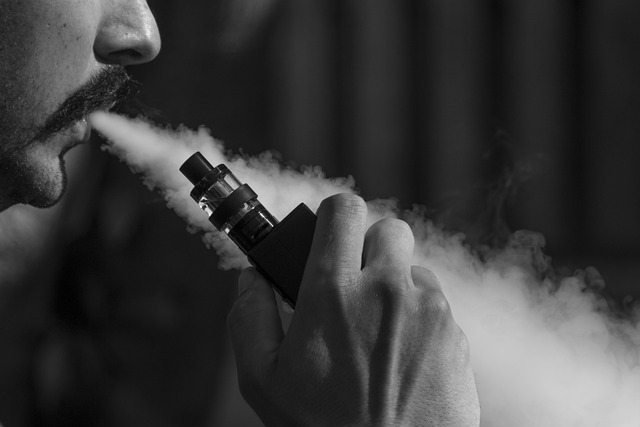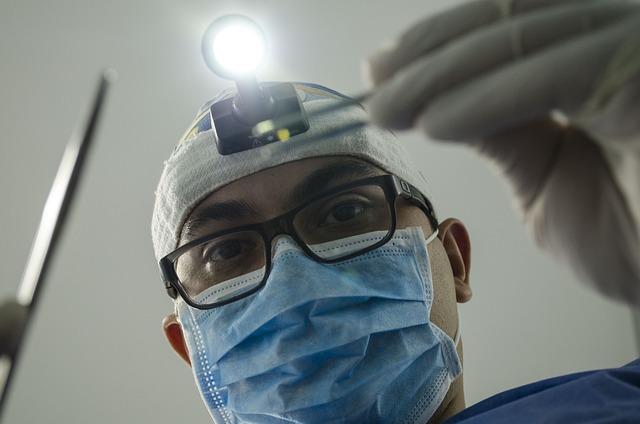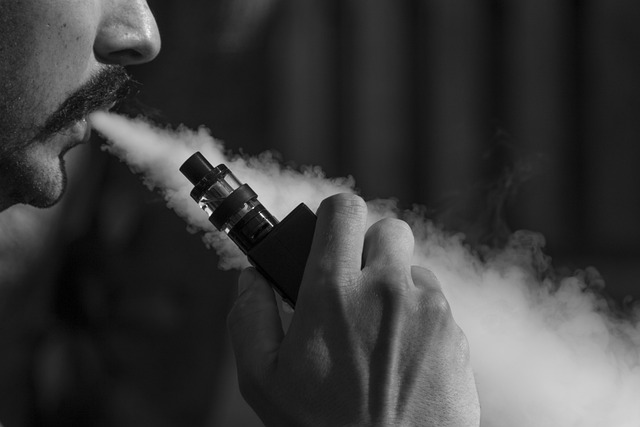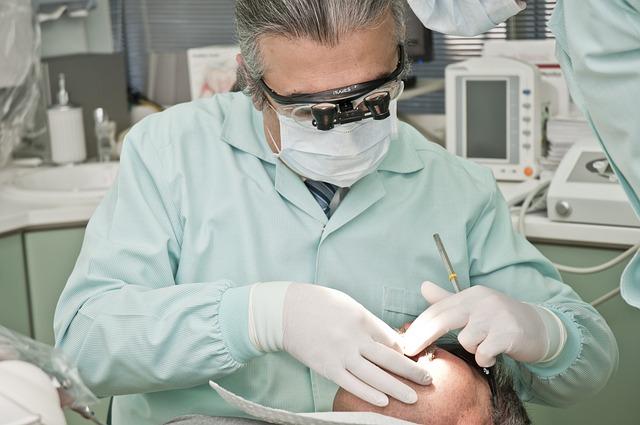Smoking with Braces: Top Myths Debunked
Smoking with braces: a topic that has sparked countless debates and raised numerous concerns among those embracing orthodontic treatment. As an orthodontic professional well-versed in the intricacies of oral health, it is my duty to dispel any myths surrounding this issue. In this article, we will delve into the realm of smoking and braces, debunking the top misconceptions and shedding light on the real facts. So, let’s set the record straight once and for all, armed with confidence, knowledge, and a neutral perspective.
1. The Truth About Smoking with Braces: Dispelling Common Myths
Smoking with braces is a topic that often raises concerns and questions among both smokers and those who wear braces. Here, we aim to dispel some of the common myths surrounding smoking and braces, providing you with the truth and facts you need to know.
Myth 1: Smoking won’t affect my orthodontic treatment.
- Fact: Smoking can significantly hinder the progress of your orthodontic treatment. The chemicals present in cigarettes can weaken the gums and bone supporting your teeth, making it harder for braces to work effectively. Additionally, smoking increases the risk of tooth decay, gum disease, and staining, which can all compromise the desired outcome of your treatment.
Myth 2: Switching to e-cigarettes or vaping is a safe alternative.
- Fact: While e-cigarettes and vaping may seem like a healthier option compared to traditional cigarettes, they still pose risks to orthodontic treatment. The nicotine and other chemicals in these products can also weaken the gums and bone, affecting the movement of your teeth. Furthermore, the heat and vapor from e-cigarettes can cause discoloration or damage to the braces, wires, and elastic bands.
2. Debunking Smoking Myths: What You Need to Know When Wearing Braces
When it comes to wearing braces, there are several myths surrounding smoking that need to be debunked. It’s important to have accurate information to ensure the health and effectiveness of your orthodontic treatment. Here are some facts you need to know:
1. Smoking doesn’t discolor braces: One common misconception is that smoking can cause braces to become discolored. However, the truth is that braces themselves do not stain. It’s the adhesive used to attach the brackets to your teeth that may be affected by smoking. This adhesive can absorb the particles from cigarettes and appear yellowish. Regular brushing and proper oral hygiene can help prevent this discoloration.
2. Smoking can delay the healing process: Smoking can have a negative impact on the healing process of your gums and oral tissues. The chemicals in cigarettes can impede blood flow, which is crucial for the healing of any surgical procedures or adjustments made during your orthodontic treatment. It is advisable to quit smoking or at least reduce your smoking habits to promote faster healing and minimize any potential complications.

3. Smoking and Braces: Understanding the Facts and Avoiding Misconceptions
Smoking and braces can have a significant impact on your orthodontic treatment. It is important to understand the facts and dispel any misconceptions to ensure the success of your braces journey. Here are some key points to consider:
- Braces and oral health: Smoking can exacerbate the risk of oral health problems such as gum disease and tooth decay. When combined with braces, the effects can be even more detrimental. The brackets and wires create additional surfaces for plaque and bacteria to accumulate, leading to an increased risk of cavities and gum inflammation.
- Delayed healing: Smoking can impede the healing process, which is crucial during orthodontic treatment. The heat and chemicals in cigarettes can slow down blood flow, reducing the supply of oxygen and nutrients to the teeth and gums. This can prolong the time it takes for the teeth to move into their desired positions and increase the likelihood of complications or unsatisfactory results.
It is important to note that quitting smoking during braces treatment is highly recommended to ensure the best possible outcome. By eliminating smoking, you are not only improving your oral health but also increasing the chances of achieving a beautiful, healthy smile in a timely manner.

4. Separating Fact from Fiction: Smoking and Braces - A Clear Perspective
When it comes to smoking and braces, it’s important to separate fact from fiction to make informed decisions about your oral health. Let’s debunk some common myths and provide a clear perspective:
Myth: Smoking won’t affect my braces.
- Fact: Smoking can have detrimental effects on your braces, as well as your overall oral health. The tar and nicotine found in cigarettes can stain the brackets and wires, leading to a yellowish appearance. This staining is not only unsightly but can also be difficult to remove, even after your braces are removed. Additionally, smoking can weaken the gums and bones that support your teeth, which may result in problems with tooth movement and alignment. It’s essential to avoid smoking during your orthodontic treatment to achieve the best results.
Myth: E-cigarettes are a safe alternative to traditional cigarettes for those with braces.
- Fact: While e-cigarettes don’t produce the same amount of tar and smoke as traditional cigarettes, they still contain harmful chemicals and nicotine. The aerosol from e-cigarettes can also discolor your braces and impact your oral health. Moreover, the heat generated by e-cigarettes can affect the wires and brackets, potentially leading to damage or the need for more frequent adjustments. It’s advisable to stay away from e-cigarettes during orthodontic treatment, just as you would with traditional cigarettes.

5. Unveiling the Reality: Smoking and Braces – The Myths Unmasked
Smoking and wearing braces have long been subjects of speculation and misinformation. Let’s set the record straight and uncover the truth behind these two topics.
Myth: Smoking doesn’t affect braces.
Contrary to popular belief, smoking can have detrimental effects on your braces and overall oral health. The nicotine and tar in cigarette smoke can stain the elastics, wires, and brackets of your braces, making them appear unsightly. Moreover, smoking weakens the gums and slows down the teeth movement process, potentially prolonging your treatment time. Additionally, smoking increases the risk of gum disease, which can exacerbate the already heightened vulnerability of gums due to braces.
Myth: Smoking helps with pain caused by braces.
This is entirely false. Smoking does not alleviate discomfort or pain associated with braces. In fact, smoking can worsen the pain as it reduces blood flow, hindering the healing process. Furthermore, smoking weakens the immune system, making it harder for your body to fight off infections or any complications that may arise during orthodontic treatment. It is crucial to adopt healthier alternatives, such as using orthodontic wax or consuming cold foods, to ease any discomfort caused by braces.

6. Setting the Record Straight: The Truth About Smoking and Braces
Smoking and braces can have detrimental effects on your oral health, and it’s important to understand the truth behind this harmful combination. Here are some facts to set the record straight:
- Increased risk of gum disease: Smoking not only stains your teeth but also weakens your gums, making them more susceptible to infection. When combined with braces, which already make it harder to clean your teeth and gums, smoking further increases the risk of gum disease.
- Delayed healing process: Smoking slows down the body’s natural healing process. If you undergo any dental procedures, such as adjustments or extractions while wearing braces, smoking can significantly prolong the healing time required.
Additionally, smoking can weaken the bone structure supporting your teeth, which is crucial for successful orthodontic treatment. Here are a few more important points to consider:
- Increased risk of tooth loss: Smoking is a known risk factor for tooth loss in adults. When combined with the added pressure and movement of braces, the chances of tooth loss can be even higher.
- Stained and discolored braces: Smoking causes yellowing and discoloration of teeth, which can also affect the appearance of your braces. This can be a concern for those who wish to maintain a discreet and aesthetically pleasing smile during their orthodontic treatment.
7. Smoking and Braces: Busting the Myths Once and For All
Smoking and braces – a topic that has sparked numerous debates and misconceptions over the years. It’s time to set the record straight and bust these myths once and for all. Whether you’re a smoker considering braces or a concerned individual seeking accurate information, read on to discover the truth about smoking and its impact on orthodontic treatment.
Myth 1: Smoking won’t affect my braces
- Contrary to popular belief, smoking can indeed have detrimental effects on your braces. The heat from cigarettes can cause the wires and brackets to become more pliable, potentially leading to misalignment or damage.
- Cigarette smoke contains harmful chemicals that can stain the brackets, elastics, and even the tooth enamel. This can result in noticeable discoloration and compromise the aesthetics of your smile.
- Smoking slows down the body’s natural healing process, making it harder for your mouth to recover from orthodontic adjustments or any necessary oral surgeries.
Myth 2: It’s fine to smoke as long as I clean my teeth regularly
- While maintaining good oral hygiene is essential for everyone, it’s important to note that brushing alone cannot fully counteract the negative effects of smoking on your dental health.
- Smoking weakens the gum tissues, making them more susceptible to periodontal disease. This can lead to gum inflammation, recession, and ultimately compromise the stability of your teeth and braces.
- The nicotine in cigarettes reduces blood flow to the gums, hindering the delivery of essential nutrients and oxygen to the teeth and surrounding tissues. This can impede the healing process and increase the risk of complications during orthodontic treatment.
Now that the facts are clear, it’s evident that smoking and braces simply don’t go hand in hand. Quitting smoking or at least minimizing tobacco consumption is not only beneficial for your overall health but also plays a crucial role in ensuring the success and longevity of your orthodontic journey. Seek support and guidance from your orthodontist to explore quit-smoking resources and make an informed decision that will positively impact your oral and overall well-being.
Frequently Asked Questions
Q: Can I smoke while wearing braces?
A: No, it is strongly advised to avoid smoking while wearing braces.
Q: Why is it recommended not to smoke with braces?
A: Smoking can have detrimental effects on your oral health, and when combined with braces, it can cause additional complications.
Q: What are the risks of smoking with braces?
A: Smoking with braces increases the risk of stained teeth, bad breath, gum disease, tooth decay, and even potential damage to the braces themselves.
Q: Can smoking stain my teeth if I have braces?
A: Yes, smoking can lead to stubborn stains on your teeth. The brackets and wires of braces can make it even more challenging to remove these stains, potentially causing discoloration.
Q: Does smoking affect the healing process of braces?
A: Yes, smoking can hinder the healing process of your braces. It slows down blood flow, depriving the gums of necessary oxygen and nutrients, leading to delayed healing and increased risk of complications.
Q: Can smoking cause gum disease while wearing braces?
A: Smoking is a well-known risk factor for gum disease. Combined with the presence of braces, smoking can exacerbate the risk and severity of gum disease, which can ultimately lead to tooth loss.
Q: Is there a higher risk of tooth decay when smoking with braces?
A: Yes, smoking can increase the risk of tooth decay even without braces. However, braces can trap tobacco particles and plaque more easily, intensifying the risk of decay and cavity formation.
Q: Can smoking damage the braces themselves?
A: Smoking introduces harmful chemicals and substances into your mouth, which can potentially damage the brackets and wires of your braces. This damage may require additional appointments and prolong the overall treatment time.
Q: How can I prevent smoking-related issues while wearing braces?
A: The best way to prevent smoking-related issues is to quit smoking altogether. If that’s not possible, it is strongly recommended to minimize smoking, maintain excellent oral hygiene, and visit your orthodontist regularly for check-ups and cleanings.
Q: What are the alternatives to smoking with braces?
A: It is advisable to explore healthier alternatives such as nicotine patches, gums, or other smoking cessation aids approved by healthcare professionals. These alternatives can help you quit smoking without compromising your orthodontic treatment.
Q: Is it possible to remove braces temporarily to smoke?
A: No, removing braces temporarily to smoke is not recommended. It can disrupt your treatment plan, prolong the overall treatment time, and potentially cause damage to your teeth and gums.
Q: What should I do if I experience any smoking-related issues with braces?
A: If you encounter any smoking-related issues while wearing braces, it is crucial to contact your orthodontist immediately. They will be able to assess the situation, provide appropriate guidance, and help you navigate through any complications effectively.
In Retrospect
In conclusion, we have successfully debunked the top myths surrounding smoking with braces. It is clear that smoking does indeed pose risks and complications, contrary to popular belief. The idea that smoking can somehow “sterilize” the mouth and reduce the chances of infection is simply unfounded. In reality, smoking with braces can lead to delayed healing, gum disease, and tooth discoloration. Moreover, the myth that smoking can accelerate tooth movement and shorten the time needed for orthodontic treatment is completely false. On the contrary, smoking slows down the teeth straightening process and may even necessitate longer treatment periods. Lastly, the misconception that e-cigarettes are a safer alternative for those with braces has also been refuted. The chemicals found in e-cigarettes can still cause damage to oral health and hinder the progress of orthodontic treatment. It is essential for individuals wearing braces to prioritize their oral health and refrain from smoking altogether. By dispelling these myths, we hope to encourage a healthier and more informed approach to orthodontic care.






